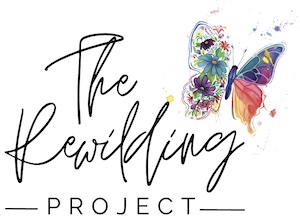Ground rules are for more than just playgrounds.
Learning to fight fair will create better connection in your relationships.
At least once a week I speak with a client about how to have a tough conversation with someone they’re in a relationship with. This includes things like:
- Approaching a prickly topic
- Drawing or holding a boundary
- Telling someone they were a jerk or hurt your feelings
- Asking for something you’re afraid they’ll be upset about
All these situations have the risk of causing a fight, and no one likes to fight! It’s uncomfortable and most of us don’t know how to do it constructively. In fact, lots of people believe fighting is a bad thing and negatively impacts relationships.
For those reasons and others, lots of people avoid having some of these necessary conversations. Instead, they’ll try to make the best of the situation and ignore the resulting tension as best they can.
What’s the impact when you do that over and over?
It’s pretty sh*tty that’s what!!
When you let things fester in your relationship, whether big issues or a bunch of little issues, it erodes the connection and intimacy.
It’s as if every time you avoid saying something or discussing what’s not working, you’re adding a brick to an invisible wall that you’re building between you.
Brick by brick, ignored or tolerated situation after situation, and the wall gets higher and higher. The connection fades and intimacy dies.
Eventually, you can’t really see the other person at all… all you see are the bricks that represent what you’ve avoided and are upset about, rather than the love.
The love never goes anywhere, it’s just covered up with all your unresolved issues.
Dealing with these situations is scary because most of us were never really taught how to do it effectively. I don’t know about you but I never got taught about how to have constructive conflict.
My role models taught me that silence, sarcasm, and passive-aggressiveness were the way to go – and that doesn’t work.
Until I went about consciously learning how to do things differently all I was actually doing was trying to protect myself and control the situation.
For me that looked like:
- Being passive-aggressive
- Avoiding talking about things
- Undermining the other person
- Being overly angry, even explosive
- Withdrawing emotionally or physically to ‘punish’
- Trying to intimidate the other person into letting me have my way
- Playing victim trying to make the other person feel guilty and give in
- Threatening to end the relationship if I didn’t get my way
(Yikes! When I look at that list, I’m really glad I spent the time to learn how to ‘do relationships well’!)
Those are all very common ways of dealing with uncomfortable situations. They also don’t create great relationships.
To create connection in your relationship:
- Talk about what you need
- Be honest about your feelings
- Know what works, and what doesn’t
That means knowing yourself and your boundaries and having these uncomfortable and vulnerable conversations, despite any awkwardness and tension you feel.
A simple way to improve the success rate of your uncomfortable conversations is to set some basic ground-rules. These agreements, set ahead of time, ensure you’re both playing towards the same end.
What are effective conflict ground rules?
To start, I suggest listing things that made you uncomfortable in the past. For example:
- Someone storming out and leaving you hanging
- Eye-rolling or heavy sighing (with contempt)
- Yelling, name calling, or swearing at you
- Patronizing or talking down to you
- Interrupting and not listening
There certainly are more examples than just those, but you get the idea.
Once you have a sense of some of the behaviours and situations that don’t work for you, look for what might work instead. For example, instead of walking out pausing the conversation before things get heated could work.
After you’ve identified some alternative actions and behaviours, it’s important to discuss with your partner and agree on how you’ll do things moving forward.
These types of agreements set you up for success when you’re dealing with your automatic reactions during situations like this.
Some other ideas for ground rules include:
Stop the conversation and get clear on what you’re actually talking about.
- That means literally saying what the conflict is about before you go any further. Sometimes this act alone can solve the problem.
Set a time limit.
- More than an hour of conversation and you’re rehashing what’s already been discussed or not focused on a solution. If you hit the 60-minute time limit, you might both need to step away and come back at another specifically agreed upon time, preferably after a good night’s sleep.
The past is the past.
- Neither of you brings previous fights or disappointments into this new conversation.
No distractions.
- Put away phones, TV, computers, etc. for the duration of the conversation.
Listen!
- Get/understand what the other person is trying to tell you, even what they’re not saying out loud. This includes tone, facial expressions, and body language.
Make a date.
- Set a time that works for everyone to talk. Blind-siding someone with “we need to talk, now” will automatically create defensiveness.
Trigger-y language and phrases.
- Agree on phrases like “we need to talk” as well as language like name-calling or cursing, that should be avoided ahead of time.
Having responsible communication with people takes something.
Bottom line? All of these suggestions are great in theory, putting them into practice on the regular is a completely different story. Remembering, in the moment, to check yourself before you respond or react ain’t easy.
Something I like to remind people of, is to remember you’re on the same team. When your partner wins, so do you and vice versa. Getting bogged down in protecting yourself and building walls is a tired pattern and you deserve better.
Practicing better communication skills in your life will improve all your relationships, including the one with yourself. You’ll get better at recognizing your truth and speaking it, as well as where you’re starting to fall into old habits and hijack your emotional connections with people.
Becoming someone who reliably uses responsible communication practices will end up drawing people and healthy relationships to you like a magnet.







